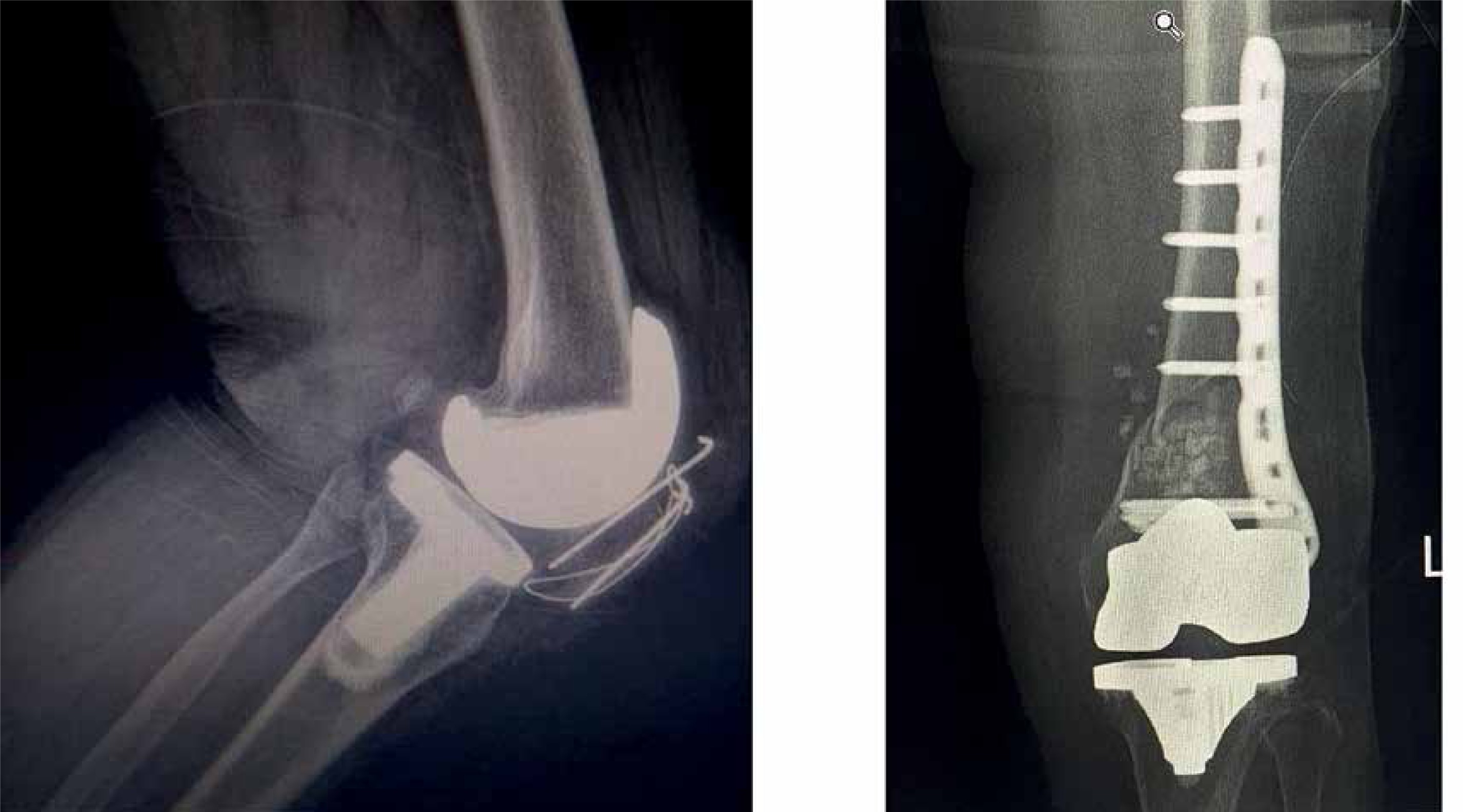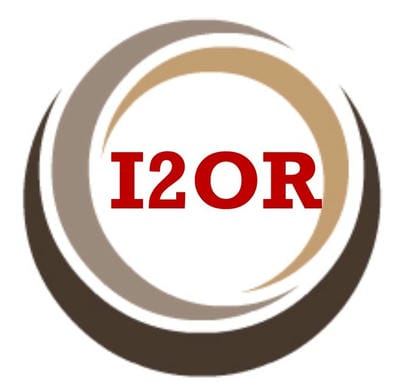Assessment of mid-term outcomes and bone loss/quality in patients undergoing Revision Total Knee Arthroplasty (TKA)
Abstract
Abstract
Background and Aim: Revision total knee arthroplasty (TKA) is one of the most demanding and complex procedures in orthopedic surgery. The aim of this study was to evaluate the outcomes of a consecutive series of rTKA in which implant fixation has been obtained in at least two zones. Factors that may contribute to intraoperative management decisions and postoperative outcomes were evaluated.
Materials and Method: After registry evaluation, 115 patients matched the inclusion criteria and were included in the study. All patients were evaluated pre-operatively, including assessment for periprosthetic joint infection. All patients who underwent RTKA for infection received a two-stage revision with a minimum of 6 weeks between initial debridement and removal of implants and the second-stage revision.
Results: The mean OKS or the post operative function outcome was found to be 41.38. The range of motion increased from 900 to 1100 at the one year post operative period. Approximately 75% of patients were satisfied with their RTKA and stated that they would undergo an RTKA again. Survival rate of 95.8% was demonstrated within the patients who were able to be contacted. Eight RTKAs in 5 patients demonstrated failure of TKA and required re-revision.
Conclusion: Revision TKA is a demanding procedure for both the surgeon and the patient, but if a step-wise approach is used during surgery, bone loss is correctly evaluated and treated, and good implant fixation is obtained, good clinical and radiological outcomes may be achieved at mid-term follow-up
Downloads
References
(2) Song, I.-S.; Sun, D.-H.; Chon, J.-G.; Jang, S.-W.; Sun, D.-H. Results of revision surgery and causes of unstable total knee arthroplasty. Clinics in Orthopedic Surgery 2014, 6 (2), 165-172.
(3) Nakano, N.; Matsumoto, T.; Muratsu, H.; Ishida, K.; Kuroda, R.; Kurosaka, M. Revision total knee arthroplasty using the modern constrained condylar knee prosthesis. Acta Ortopédica Brasileira 2016, 24, 304-308.
(4) Moon, M.-S. Tuberculosis of spine: current views in diagnosis and management. Asian spine journal 2014, 8 (1), 97.
(5) Vince, K. G.; Oakes, D. A. Three-step technique for revision total knee arthroplasty. In Surgical Techniques in Total Knee Arthroplasty, Springer, 2002; pp 384-389.
(6) Quinn, J.; Jones, P.; Randle, R. A Reliable Surgical Approach to Revision Total Knee Arthroplasty. Clinics in Orthopedic Surgery 2022, 14 (2), 213.
(7) Salari, P.; Baldini, A. Revision knee surgery: the practical approach. EFORT Open Reviews 2021, 6 (6), 495-500.
(8) Jones, P.; Randle, R. Thesis Title: Postoperative outcomes following revision total knee arthroplasty. 2020.
(9) Enayatollahi, M. A.; Parvizi, J. Diagnosis of infected total hip arthroplasty. Hip International 2015, 25 (4), 294-300.
(10) Engh, G. A.; Ammeen, D. J. Classification and preoperative radiographic evaluation: knee. Orthopedic Clinics of North America 1998, 29 (2), 205-217.
(11) Rosso, F.; Cottino, U.; Dettoni, F.; Bruzzone, M.; Bonasia, D. E.; Rossi, R. Revision total knee arthroplasty (TKA): mid-term outcomes and bone loss/quality evaluation and treatment. Journal of orthopaedic surgery and research 2019, 14 (1), 1-9.
(12) Bozic, K. J.; Kurtz, S. M.; Lau, E.; Ong, K.; Chiu, V.; Vail, T. P.; Rubash, H. E.; Berry, D. J. The epidemiology of revision total knee arthroplasty in the United States. Clinical Orthopaedics and Related Research® 2010, 468 (1), 45-51.
(13) Patel, S.; Metgud, R. Estimation of salivary lactate dehydrogenase in oral leukoplakia and oral squamous cell carcinoma: a biochemical study. Journal of cancer research and therapeutics 2015, 11 (1), 119.
(14) Wauthle, R.; Van Der Stok, J.; Yavari, S. A.; Van Humbeeck, J.; Kruth, J.-P.; Zadpoor, A. A.; Weinans, H.; Mulier, M.; Schrooten, J. Additively manufactured porous tantalum implants. Acta biomaterialia 2015, 14, 217-225.
(15) Rajgopal, A.; Vasdev, A.; Gupta, H.; Dahiya, V. Revision total knee arthroplasty for septic versus aseptic failure. Journal of Orthopaedic Surgery 2013, 21 (3), 285-289.
(16) Quinn, J.; Jones, P.; Randle, R. Clinical outcomes following revision total knee arthroplasty: minimum 2-Year follow-up. Clinics in Orthopedic Surgery 2022, 14 (1), 69.

Copyright (c) 2023 Author (s). Published by Siddharth Health Research and Social Welfare Society

This work is licensed under a Creative Commons Attribution 4.0 International License.


 OAI - Open Archives Initiative
OAI - Open Archives Initiative


















 Therapoid
Therapoid

